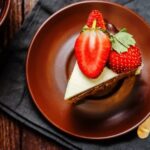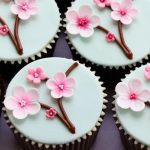Are you looking to elevate your cake decorating skills? Learning how to make cream for cake decoration is a fundamental skill for any baker or aspiring pastry chef. Whether it’s for a special occasion or just to satisfy your sweet tooth, knowing how to create the perfect cream is essential for achieving professional-looking and delicious results.
Cream is the backbone of any great cake decoration, from creating smooth and luscious layers to adding beautiful rosettes and intricate designs. In this article, we will delve into the world of cream for cake decoration, exploring the various types of creams commonly used, the ingredients needed, step-by-step instructions for making it from scratch, flavoring options, coloring and piping techniques, troubleshooting tips, and advice on storage and usage.
Understanding the importance of cream in cake decoration goes beyond just visual appeal – it also plays a crucial role in enhancing the overall taste and texture of your cakes. By learning how to make cream from scratch, you have full control over its quality and flavor, ensuring that every cake you decorate is not only visually stunning but incredibly delicious as well.
So let’s dive into the wonderful world of cream for cake decoration and discover how to create show-stopping desserts right at home.
Types of Cream
When it comes to cake decoration, the type of cream used can significantly impact the final product’s taste and texture. There are several types of creams commonly used for cake decoration, each with its own unique qualities and flavors. The most popular options include buttercream, whipped cream, and cream cheese frosting.
Buttercream is a classic choice for cake decoration, known for its smooth texture and rich flavor. It is made from butter, powdered sugar, and flavorings such as vanilla or chocolate. This versatile cream can be easily tinted with food coloring to create vibrant shades for decorating cakes and cupcakes.
Whipped cream is a lighter option that adds a fluffy and airy element to cake decoration. Made from heavy cream and powdered sugar, whipped cream is often flavored with vanilla extract and can be stabilized with gelatin to hold its shape for longer periods. This type of cream is ideal for creating soft swirls and rosettes on cakes.
Cream cheese frosting offers a tangy twist to cake decoration with its creamy consistency and subtle sour note. Made from cream cheese, butter, powdered sugar, and flavorings like lemon zest or citrus extracts, this type of cream is perfect for adding depth of flavor to carrot cakes or red velvet desserts.
| Type of Cream | Main Ingredients |
|---|---|
| Buttercream | Butter, Powdered Sugar, Flavorings |
| Whipped Cream | Heavy Cream, Powdered Sugar |
| Cream Cheese Frosting | Cream Cheese, Butter, Powdered Sugar |
Ingredients Needed
Making cream for cake decoration requires specific ingredients in order to achieve the desired consistency and flavor. Different types of creams call for different components, so it’s essential to have a detailed list of ingredients and measurements on hand before starting the process.
For buttercream, commonly used in frosting and decorating cakes, you will need unsalted butter, confectioners’ sugar (also known as powdered sugar), vanilla extract, and milk or heavy cream. The basic recipe is typically one part butter to two parts sugar, with additional flavorings added to taste.
Whipped cream, another popular choice for cake decoration, usually only requires heavy cream and confectioners’ sugar. Some variations may include vanilla extract or other flavorings to enhance the taste. It’s important to note that whipped cream has a lighter texture compared to buttercream, making it ideal for filling and topping cakes.
Cream cheese frosting is made with cream cheese, unsalted butter, confectioners’ sugar, and vanilla extract. This type of cream offers a tangy yet sweet flavor that pairs well with both chocolate and fruit-flavored cakes. The addition of cream cheese results in a denser and richer consistency compared to traditional buttercream.
Having the right ingredients and precise measurements is crucial for achieving the perfect base for cake decoration. By following the provided list of ingredients along with their respective variations, aspiring pastry chefs can create various types of creams suitable for different cake decorating techniques.
| Type of Cream | Ingredients Needed |
|---|---|
| Buttercream | Unsalted Butter, Confectioners’ Sugar, Vanilla Extract, Milk or Heavy Cream |
| Whipped Cream | Heavy Cream, Confectioners’ Sugar (optional: Vanilla Extract) |
| Cream Cheese Frosting | Cream Cheese, Unsalted Butter, Confectioners’ Sugar (optional: Vanilla Extract) |
Step-by-Step Instructions
Making cream for cake decoration is a crucial skill for any baker, as it adds flavor, texture, and visual appeal to your creations. Whether you prefer buttercream, whipped cream, or cream cheese frosting, knowing how to make the perfect creamy topping from scratch will take your cakes to the next level.
Gather Your Ingredients
Before you begin making your cream for cake decoration, gather all the necessary ingredients. For a basic buttercream, you’ll need unsalted butter, confectioners’ sugar, vanilla extract, and a pinch of salt. Whipped cream requires heavy whipping cream, confectioners’ sugar, and vanilla extract. Cream cheese frosting typically includes cream cheese, unsalted butter, confectioners’ sugar, and vanilla extract.
Mixing and Beating
Once you have your ingredients ready, start by mixing the butter or cream cheese until smooth. Add in the confectioners’ sugar gradually and beat until the mixture becomes light and fluffy. For whipped cream, use a chilled bowl and beat the heavy whipping cream until it starts to thicken before adding in the sugar and vanilla extract.
Adjusting Consistency
Depending on the type of cream you’re making and its intended use for cake decoration – filling layers or piping designs – you may need to adjust the consistency. If your buttercream is too thick or stiff, add a small amount of milk or heavy cream while continuing to beat it until it reaches your desired consistency. Conversely, if it’s too thin or runny, gradually add more confectioners’ sugar until it thickens.
Following these step-by-step instructions will help you achieve the perfect consistency and flavor for your homemade cake decoration creams. With practice and attention to detail in each step of the process, you’ll be able to create beautifully decorated cakes that taste as good as they look.
Flavoring Options
When it comes to cake decoration, one of the most important aspects is the flavor of the cream used. Adding different flavors to the cream can take a simple cake to a whole new level, making it a delightful treat for any occasion. There are various flavoring options that can be used to enhance the taste of the cream, and here are some popular choices:
- Vanilla: Vanilla is a classic flavor that goes well with almost any type of cake. It adds a subtle sweetness and aroma to the cream, giving it a deliciously comforting taste.
- Chocolate: For all the chocolate lovers out there, adding cocoa powder or melted chocolate to the cream can create a rich and indulgent flavor that pairs perfectly with chocolate cakes.
- Fruit Extracts: Fruit extracts such as lemon, orange, strawberry, or raspberry can bring a refreshing and fruity twist to the cream. These extracts provide a burst of natural fruit flavor, adding brightness and tanginess to the overall taste.
In addition to these traditional flavorings, there are also numerous creative additions that can be incorporated into the cream for unique and innovative flavors. From coffee or caramel syrups to almond or mint extracts, there are endless possibilities for customizing the cream to suit your preferences and complement your cake design.
Experimenting with different flavor combinations can add an element of surprise and delight to your cakes, allowing you to personalize each creation according to your own taste or in accordance with specific occasions such as birthdays, holidays, or special events. Whether you prefer subtle and familiar flavors or bold and adventurous ones, choosing the right flavor for your cream is an essential part of elevating your cake decoration skills.
Coloring and Piping
Piping bags are indispensable tools for creating intricate designs and patterns on cakes. Whether you’re using buttercream, whipped cream, or cream cheese frosting, mastering different piping techniques can take your cake decorating skills to the next level.
For beginners, practicing with different piping tips and varying pressure while piping is crucial for achieving clean lines and uniform designs. To create more elaborate decorations such as flowers or rosettes, YouTube tutorials and online resources can be invaluable sources of inspiration and guidance.
In addition to color and technique, considering the temperature of the cream is crucial when working with piping bags. Cream that is too warm may cause designs to lose their shape, while cream that is too cold may become difficult to pipe.
It’s important to work with chilled but pliable cream when using piping bags for cake decoration. By mastering these coloring and piping techniques, decorators can elevate their cakes from simple desserts to works of art that wow both visually and in flavor.
Troubleshooting
Texture Problems
One common issue that may arise when making cream for cake decoration is a lumpy or curdled texture. This can happen when the ingredients are not well incorporated or when they are not at the right temperature. To fix this issue, continue beating the cream on low speed until it becomes smooth and creamy. If the cream is too soft, refrigerate it for a few minutes before continuing to beat it until it reaches the desired consistency.
Flavor Inconsistencies
Another common issue is flavor inconsistencies in the cream, which can occur if the ingredients are not properly measured or if the flavorings are added inconsistently. To solve this problem, taste the cream and adjust the flavorings as needed. For example, if the cream lacks sweetness, add powdered sugar in small increments until you achieve the desired level of sweetness. Be sure to mix well after each addition and taste as you go.
Overbeating
Overbeating can also be a problem when making cream for cake decoration, resulting in a grainy or buttery texture. If this happens, try adding a small amount of fresh cream and gently folding it into the overbeaten mixture until it comes back together into a smooth consistency. However, be careful not to overmix once again. It’s essential to pay close attention to the mixing process to avoid overbeating in the first place.
By being aware of these potential issues and knowing how to address them effectively, you can ensure that your homemade cream for cake decoration turns out just right every time.
Tips for Storage and Usage
In conclusion, mastering the art of making cream for cake decoration is an essential skill for any baker or cake decorator. Whether it’s buttercream, whipped cream, or cream cheese frosting, understanding the different types of cream and how to make them from scratch opens up a world of possibilities for creating beautiful and delicious cakes.
By following the step-by-step instructions and exploring flavoring options, coloring techniques, and piping skills, you can elevate your cake decorating game to a whole new level.
One important aspect to consider is the proper storage of leftover cream. By following the tips provided in this article, you can ensure that your cream stays fresh and usable for future cake decorating projects. Additionally, learning how to use leftover cream efficiently can help minimize waste and save both time and money in the long run.
Ultimately, knowing how to make and store cream for cake decoration empowers you to unleash your creativity and express yourself through stunning cake designs. With this knowledge at your disposal, you can take on new challenges and delight friends and family with beautifully decorated cakes for any occasion. So go ahead, experiment with different flavors, colors, and techniques – the possibilities are endless.
Frequently Asked Questions
How to Make Fresh Cream to Decorate Cake?
Making fresh cream to decorate a cake is a simple process that involves using heavy whipping cream and powdered sugar. Start by chilling the mixing bowl and beaters in the refrigerator, as well as the heavy cream.
Once everything is cold, whip the heavy cream until it starts to thicken, then gradually add in the powdered sugar while continuing to whip until stiff peaks form. Be careful not to over-whip the cream, as it can turn into butter.
What Cream to Use for Decorating Cakes?
When it comes to decorating cakes, the best cream to use is typically heavy whipping cream. This type of cream has a high fat content, which allows it to be whipped up into stiff peaks that hold their shape when used for decorating purposes. Heavy whipping cream also has a rich flavor that complements various cake flavors without overwhelming them.
What Is the Name of the Cream Used in Cake Decorating?
The name of the cream commonly used in cake decorating is simply “whipped cream.” However, this whipped cream is made from heavy whipping cream that has been whipped with powdered sugar or other sweeteners until it holds its shape and can be piped or spread onto cakes and other desserts.
It’s a versatile option for decorating due to its light texture and delicious flavor.

Welcome to my blog about home and family. This blog is a place where I will share my thoughts, ideas, and experiences related to these important topics. I am a stay-at-home mom with two young children. I hope you enjoy reading it! and may find some helpful tips and ideas that will make your home and family life even better!





